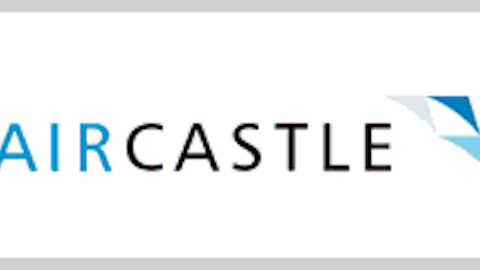Given a choice between a market leader in a slow growth industry with limited competition and a run-of-the-mill company in a high-growth and intensely-competitive industry, I will always go with the former.
Universal Corp (NYSE:UVV) is one of the top two suppliers of tobacco leaf globally, with Alliance One International the only other significant global player. Universal Corp (NYSE:UVV) delivered a respectable ROE of 13% for the trailing-12 months, which is an indication of decent profitability in the face of limited competition.
High barriers to entry
Universal Corp (NYSE:UVV) has been profitable in every single year for the past decade. The high barrier to entry in the tobacco industry are a key factor in Universal’s consistent profitability for a number of reasons.

First, it is difficult to replicate the global supply network that Universal Corp (NYSE:UVV) has built up over decades. It will be a challenge for any new entrant to manage the relationships and logistics requirements associated with playing the intermediary role between a large number of tobacco farmers and the tobacco-product manufacturers.
Second, the leaf-tobacco supply business is capital intensive, with significant capital required to be invested in tobacco processing plants. This favors Universal Corp (NYSE:UVV), which is large enough to derive economies of scale via the spreading of fixed costs over a larger revenue base.
Last but not least, the negative perception of the tobacco industry with respect to growth prospects and ethical concerns is also a significant factor in deterring potential entrants.
Concerns over direct sourcing are nothing new
A common reason for a bearish view on Universal Corp (NYSE:UVV) is that an increasing number of tobacco-products manufacturers are sourcing tobacco leaf directly from the farmers. In its most recent fiscal 2013 10-K, Universal reiterated that it has not witnessed any increase in direct sourcing by its customers of late and does not expect any increase in direct sourcing in the near future either.
Given the capital-intensive nature and lower profitability of the tobacco-leaf supply business vis-à-vis tobacco-product manufacturing, it does not make economic sense for the tobacco-product manufacturers to engage in full vertical integration and source all of their tobacco leaf needs directly.
Reduced financial risk with de-leveraging efforts
Universal has significantly strengthened its balance sheet over the years through debt reduction and free cash flow generation. As at end of the first quarter of fiscal 2014, its gearing was approximately 0.2, comparing favorably with gross debt-to-equity ratios of 0.4 and 1.0 in fiscal 2012 and 2004, respectively. The significant reduction in financial leverage helped to partially offset some of the risks associated with the high operating leverage inherent in the tobacco-leaf supply business.
Financial review and future outlook
Universal’s top line has remained flattish over the past five years, with revenue registering a negative CAGR of 0.9% from 2009 to 2013. Going forward, based on the upper end of forecasts by Philip Morris International Inc. (NYSE:PM) in November 2012, global cigarette industry volume is expected to grow by a 2012-2015 CAGR of 1.1%.
Slower growth does not necessarily mean cigarette smokers will disappear altogether. It is more likely that this group of smokers will switch from traditional cigarettes to electronic cigarettes.




